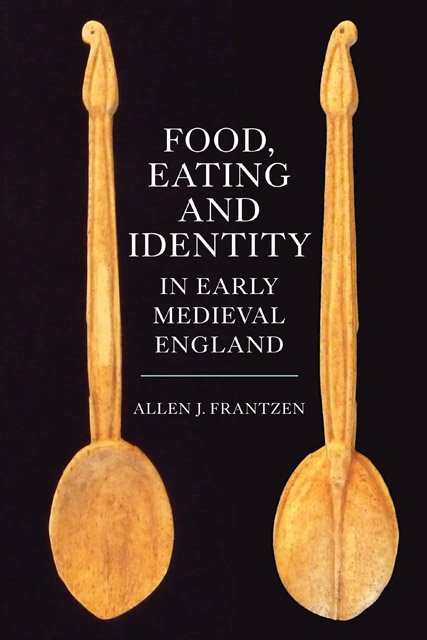9 - Laws, Food, and Settlement Change
Published online by Cambridge University Press: 14 February 2023
Summary
Early law codes, like early handbooks of penance, offer detailed accounts of obligations involving food and food purity. They are rich in kinds of information missing from later codes. Certain aspects of the treatment of food in later law codes can be illuminated by texts about status, works that are sometimes (misleadingly) called legal tracts. In this chapter I describe food culture in the laws and analyze the most important of the tracts that help to bridge gaps between ecclesiastical and secular views of food culture. I then describe a form of fasting in the OE Handbook that introduces some remarkable applications of foodways into the performance of penance.
Law codes and foodways
All the Anglo-Saxon law codes engage food culture, often through the agency of the reeve. He was, by definition, the culture’s chief food officer and was sometimes answerable both to the lord and to the bishop, although the lord and the bishop might each have had a reeve of his own. In the laws, the reeve’s office is first mentioned in the late seventh century. The reeve mediated between the lord or the bishop and those who answered to him. His position was a corruptible one, which is no doubt why the OE Penitential, passing on a regulation derived from its early ninth-century source, did not permit a priest or deacon to serve as reeve. Numerous activities required his oversight. Most of the codes issued before the eleventh century refer to food culture by addressing hospitality (feeding visitors), fosterage (providing food for dependent people), food rents (paid to a lord or an abbey), and pannage (the right to pasture pigs in a forest, or income from the right). Four seventh-century codes trace the emerging shape of English law codes, simultaneously revealing what Patrick Wormald describes as “the Church’s tightening grip on Anglo-Saxon society.”
The earliest of these are the laws of Æthelberht (d. 616), which list domas or judgments that formed precedent; the exception is a set of clauses concerning the Church, which needed protection for new rights and privileges. The Church’s views on food and food purity are not mentioned; Æthelberht’s laws concern food culture rather than food. Anyone who committed an offense while the king was feasting æt mannes ham (at someone’s home) paid double compensation; the word for “feasting” is drinking (drincæþ).
- Type
- Chapter
- Information
- Food, Eating and Identity in Early Medieval England , pp. 206 - 231Publisher: Boydell & BrewerPrint publication year: 2014



